Staff Sgt. Duncan Copley knows the risks he runs each time he heads out on a C-17 transport mission. But virtually nothing could have prepared him for the message that came across his headset in August 2021:
“We have credible intel that there could be a bomb on board.”
Copley’s calm under pressure as a loadmaster during Operation Allies Refuge, the frantic effort to evacuate more than 124,000 people from Afghanistan last summer, earned him Military Times’ 2022 Airman of the Year award.
RELATED
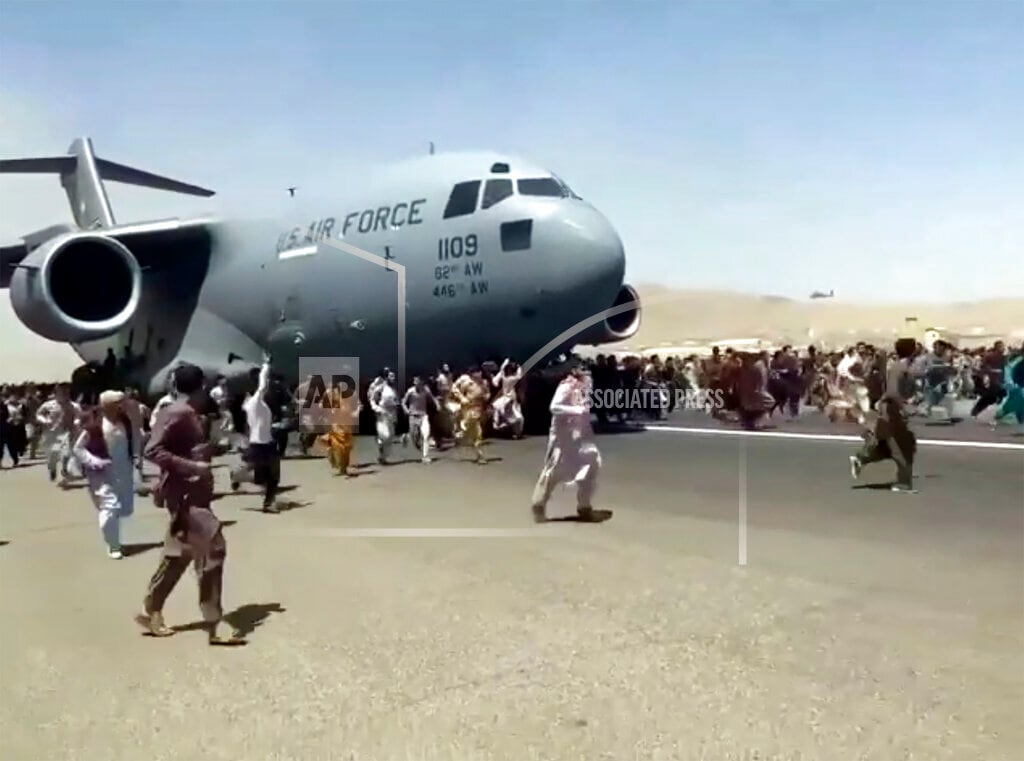
Copley, 23, of Manitowoc, Wisconsin, is a C-17 Globemaster III loadmaster instructor at the 3rd Airlift Squadron at Dover Air Force Base, Delaware.
He joined the Air Force in December 2017 to follow in the footsteps of his father, a Marine veteran, and other family members who served in the armed forces. He initially shied away from working in cargo, but gave it a shot and came to enjoy it.
After a year of technical training, Copley moved to Dover, a major transportation hub for U.S. presidents. He began flying presidential airlift missions during the Trump administration in February 2019, and deployed to Kuwait for about three months that year to move military personnel around the Middle East.
RELATED
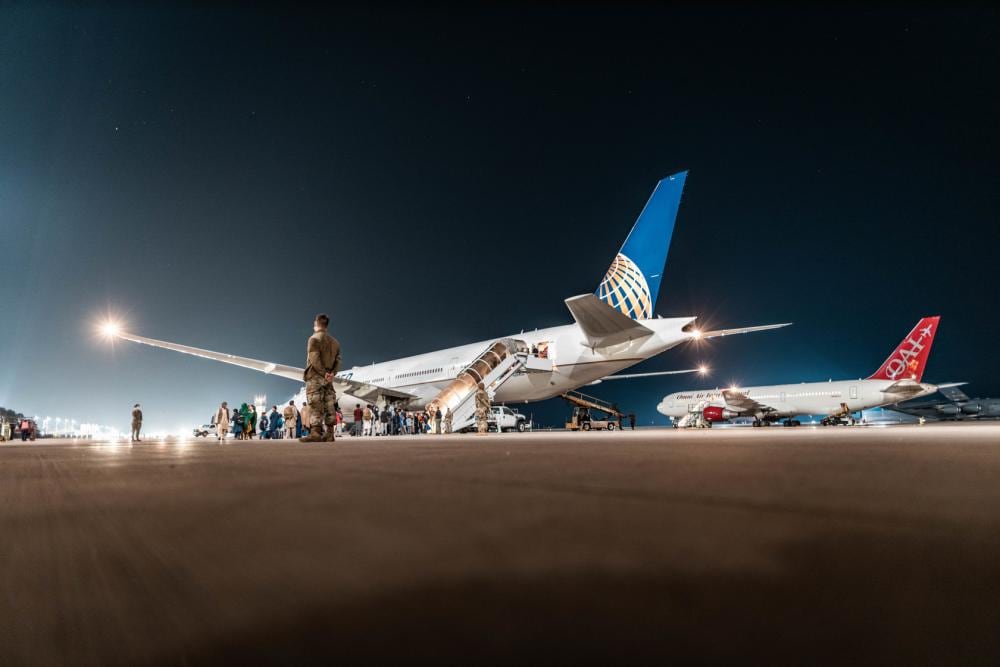
Newly elected President Joe Biden pledged in April 2021 to bring troops home within five months, an exit meant to coincide with the 20-year anniversary of the Sept. 11, 2001, terror attacks.
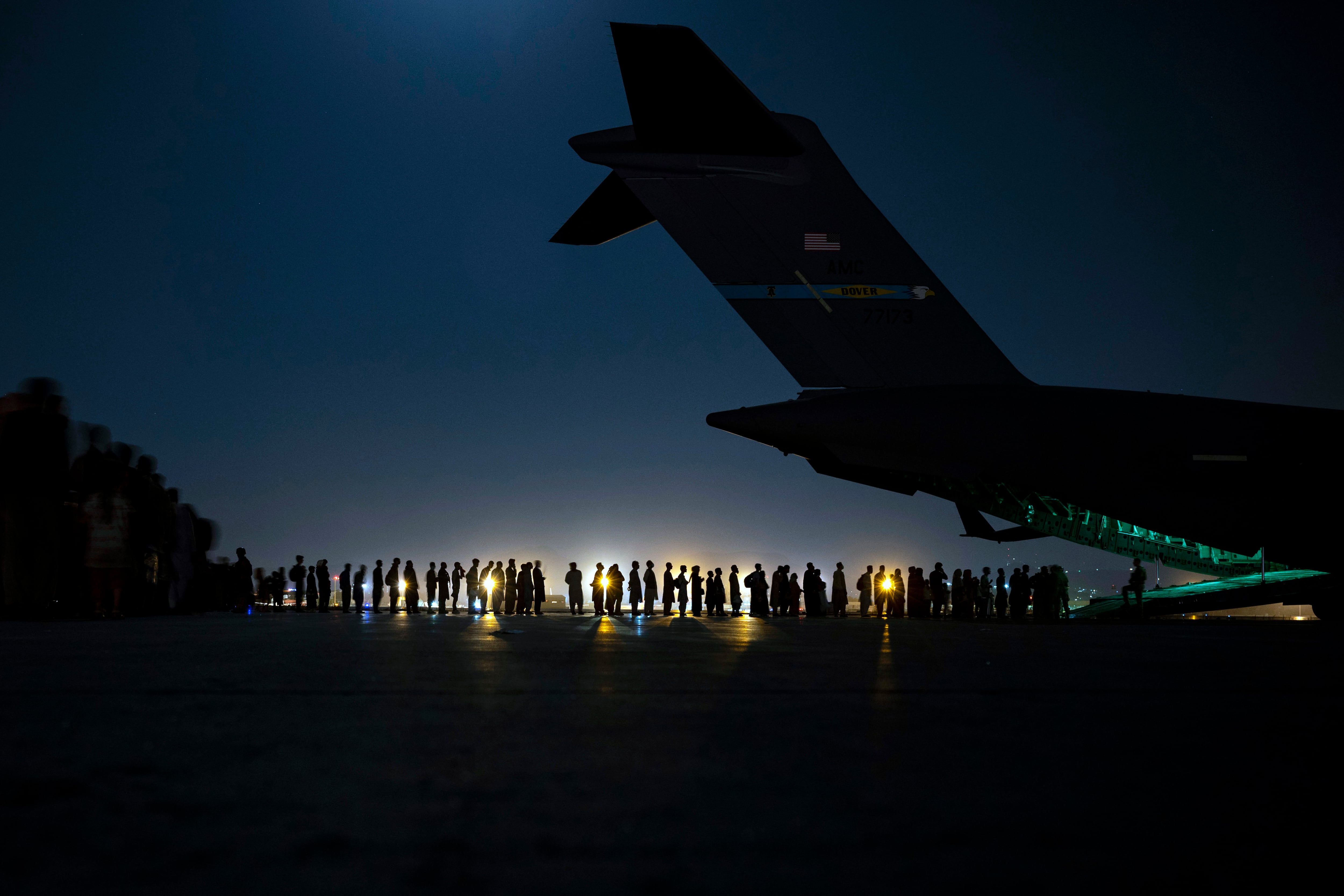
The U.S. launched Operation Allies Refuge in July, a military-led effort to bring special immigrant visa holders, applicants and prospective applicants who had helped the U.S. push for democracy there to safety.
Copley hadn’t been tasked to ferry troops or materiel out of Afghanistan since the withdrawal picked up speed over the summer. He tracked some developments on social media as the situation grew more chaotic, but had largely checked out while visiting his girlfriend’s family in Wisconsin.
Then he got a call that caught him off guard.
“‘When you get back, you’re flying immediately,’” Copley said his supervisor told him.
The airman made the 16-hour drive back to Delaware, scrambled to gather what he needed at home, and deployed to Al Udeid Air Base in Qatar Aug. 16. He wasn’t sure what lay ahead.
“Being told about this mass-scale evacuation, I didn’t know what to think,” Copley said. “We’re going [to U.S. Central Command] so often that the risks become normal.”
RELATED
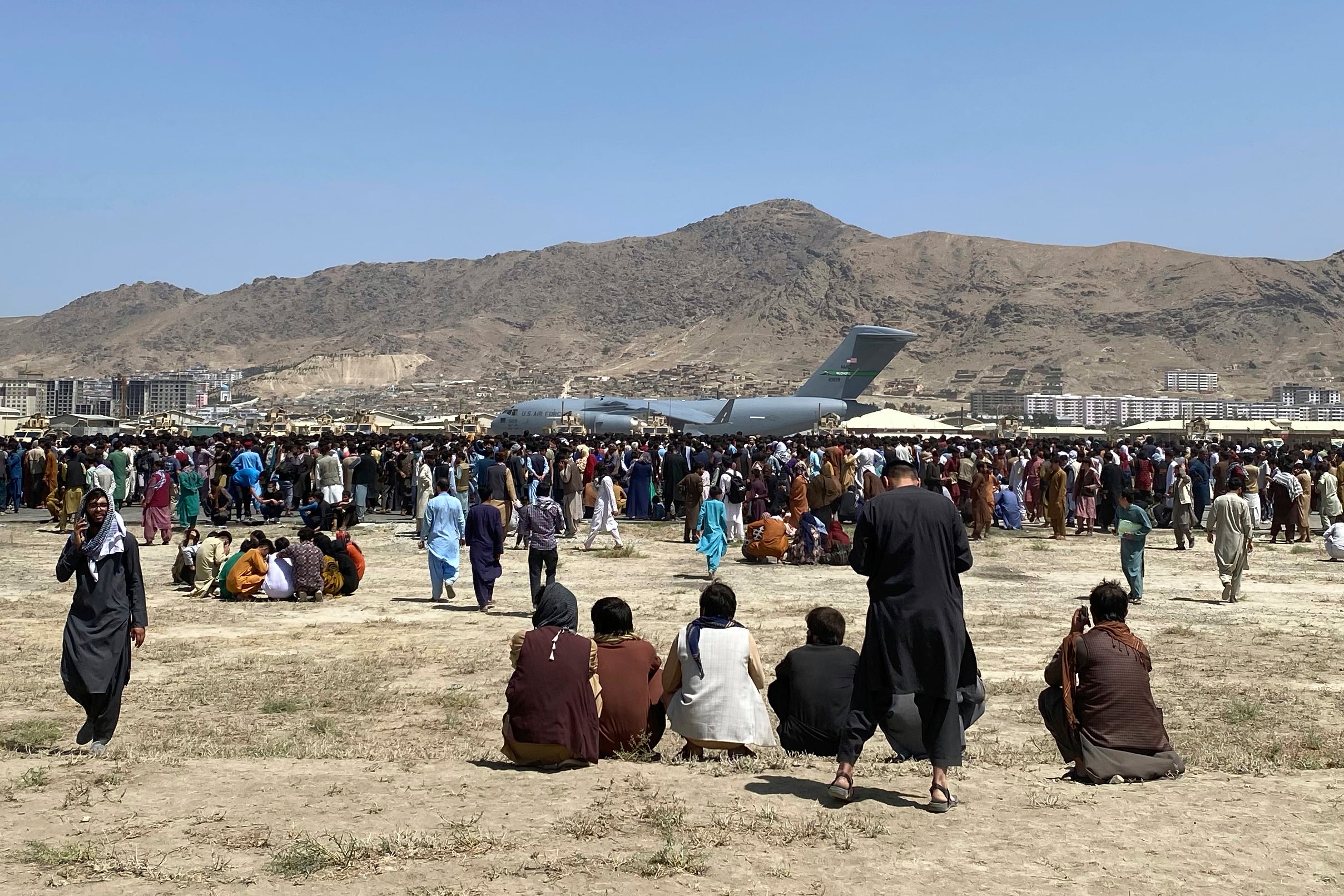
After taking a few days to settle into Al Udeid, Copley received his first assignment to Kabul. Neither he nor the aeromedical crew boarding the same jet were clear on what the mission would entail.
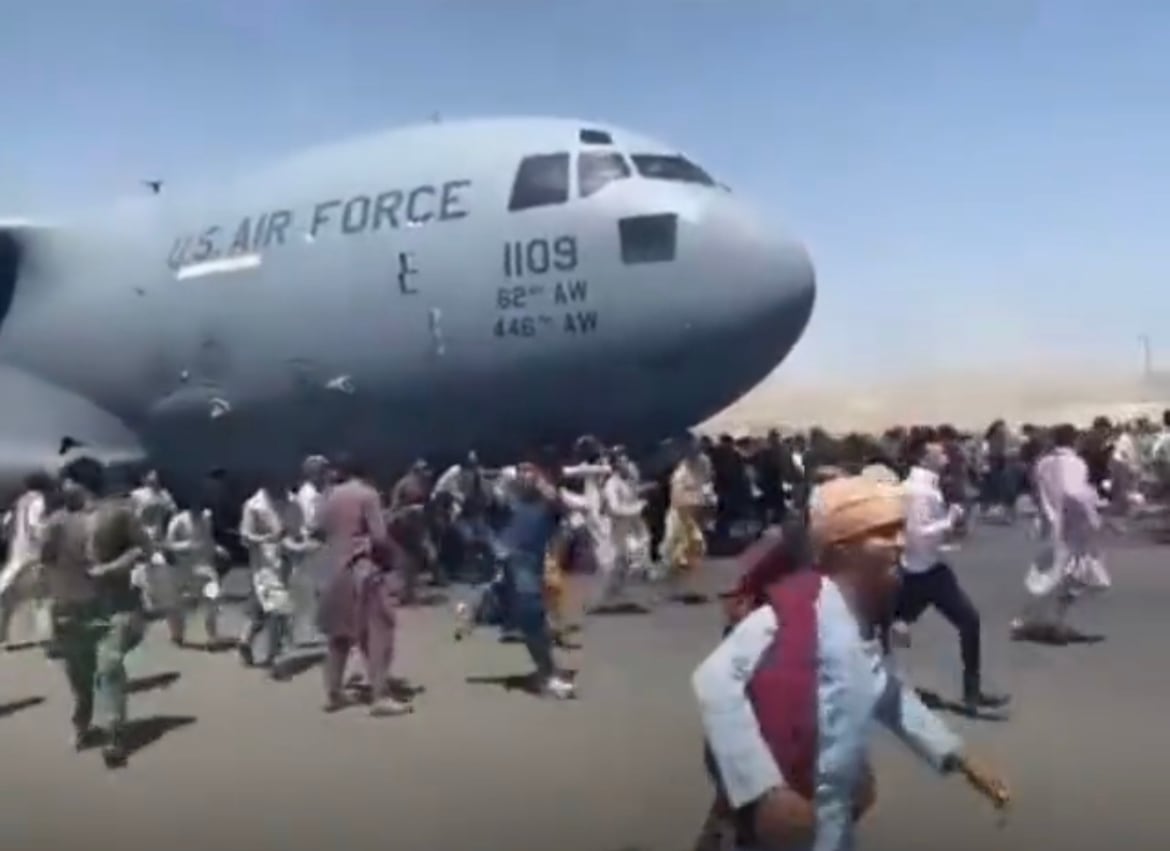
When his C-17 touched down at Kabul’s Hamid Karzai International Airport, Copley was pleasantly surprised that the U.S. military had gained control of the airfield — in stark contrast with the mobbed runway that had gone viral on social media earlier that month.
They picked up four Afghans in need of medical attention, including a man in critical condition. About 250 more people joined them.
One translator who happened to be on the flight stood out, working with the Americans and making sure the passengers understood what was happening.
“We need this guy to work for us,” Copley joked to other airmen in Qatar.
He ran into the translator soon after on a flight from Al Udeid to Ramstein Air Base in Germany.
“I thought that was awesome — I saw firsthand something that I did,” Copley said. “I brought him back, and then we got him moved into the system and he was out there helping us make sure the whole airlift went efficiently.”
For the first two flights into Kabul, loading passengers onto the plane felt almost like business as usual.
“All the gears are turning, every agency was working well together to make sure that people were coming out to the aircraft. It felt pretty normal,” Copley said.
Their third and final mission began the same way.
It was Aug. 28, two days after an Islamic State militant blew himself up at the airport’s Abbey Gate entrance, killing at least 170 Afghan civilians and 13 American service members.
The attack put Copley on edge. Before leaving on his last mission to Kabul, he texted the two people closest to him who could understand his fear: his father, the Marine vet, and his girlfriend, a Wisconsin Army National Guardsman who works in field artillery.
His dad texted back “the most Marine Corps thing,” Copley said: “Go do your job. Go do it well. I’ll see you when you get home.”
RELATED
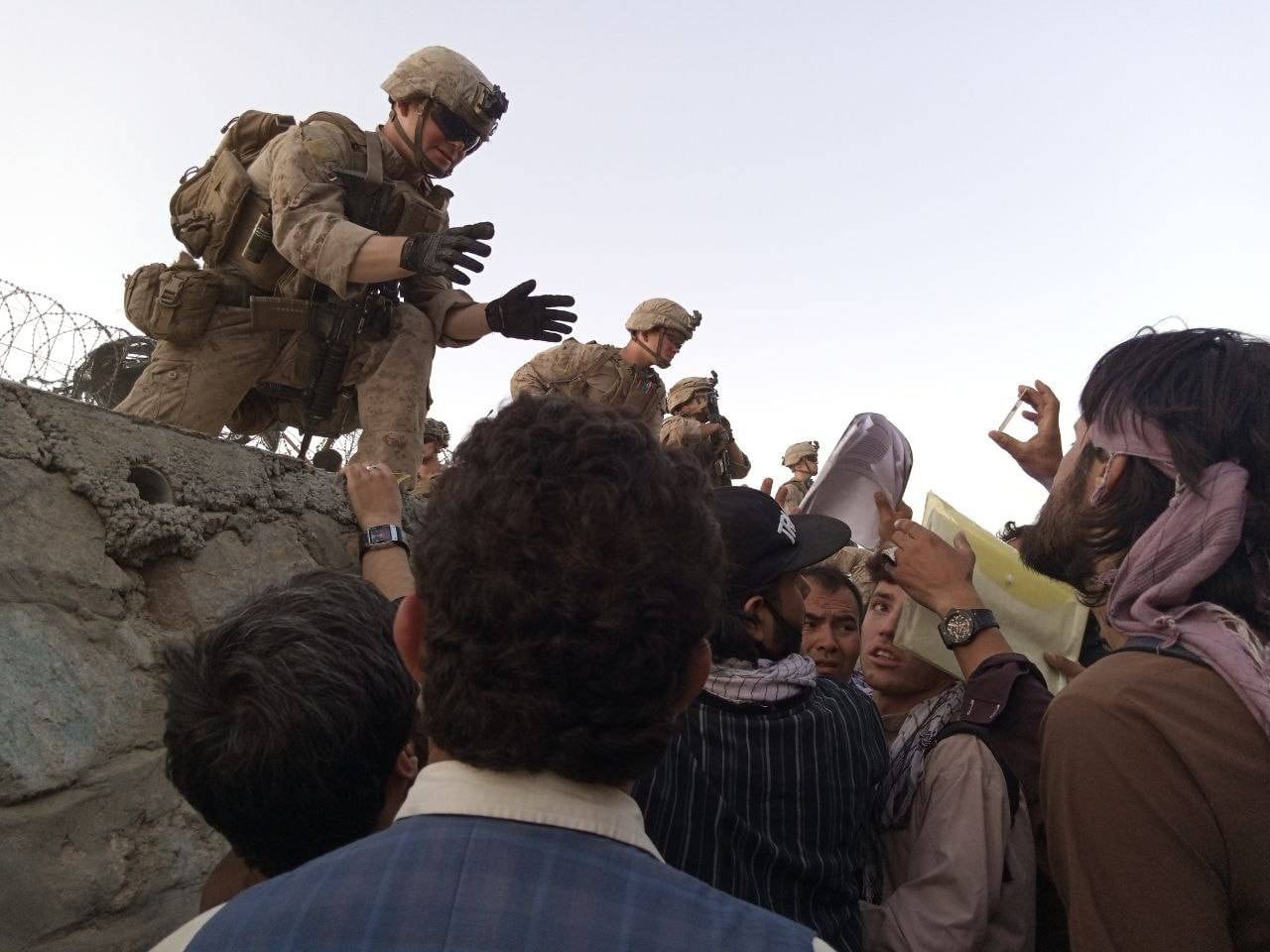
Copley was told they’d receive around 235 refugees that day and brought them in as usual. The airmen counted about 10 more passengers than expected, and reported it to air traffic control ahead of takeoff.
Air traffic control told them to wait; several minutes passed.
RELATED
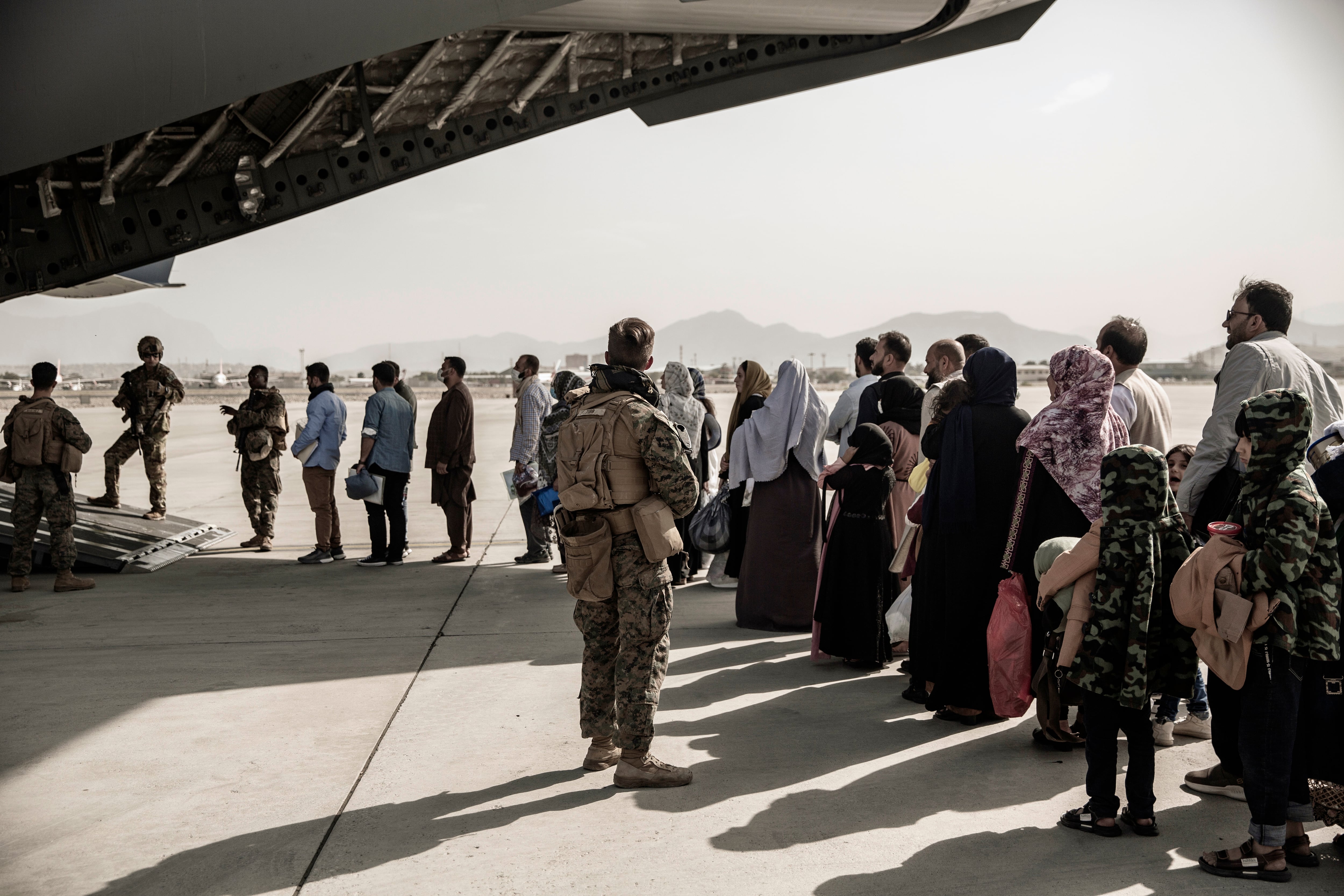
Then the radio crackled to life, warning that the U.S. had intercepted a phone call about a bombing attempt. No one spoke. Copley nervously chuckled.
“We need you to listen closely. Do exactly as we say. Do not let anybody know that we know that there is a possible threat,” he recalled the control tower saying.
Copley had the nerve-wracking task of announcing to the Afghans that they needed to deplane so Marines could search for explosives.
Some passengers balked — the C-17 was their lifeline out of the country — but eventually complied. The Marines checked each person and their bags, conducted a security sweep of the jet and cleared it to leave.
RELATED
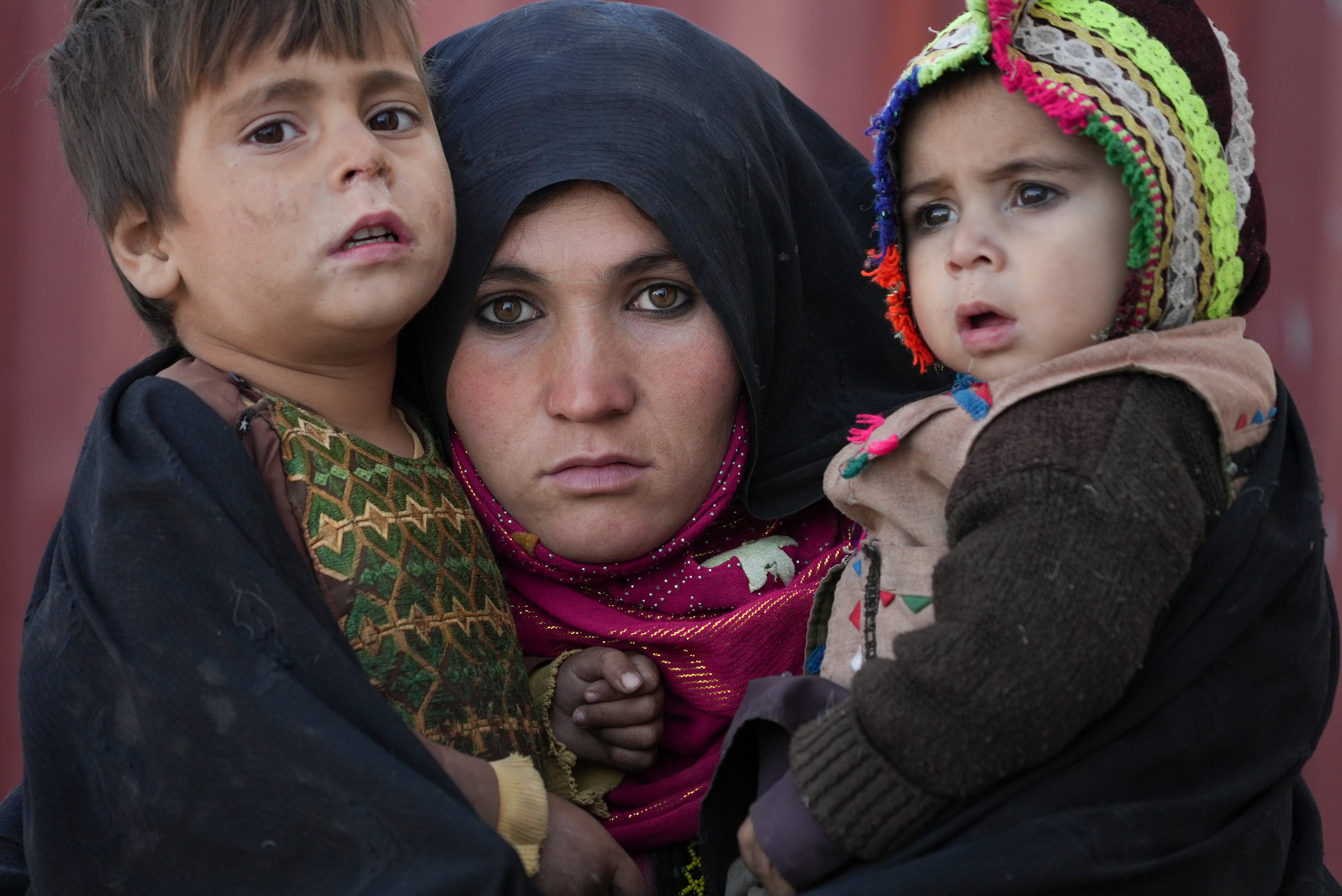
Copley and his crew had already worked longer than 24 hours straight when their aircraft finally got the all-clear to depart, and blew past their 26-hour shift limit while in the air back to Qatar.
He arrived at Al Udeid rattled, but safe. He’s not sure what became of the alleged bomb, if it existed at all.
“While I’m doing my job … I don’t have time to think about the ‘what ifs,’” he said. “When we were told that there was a credible threat on board, I didn’t get to have an opinion. I didn’t let myself.”
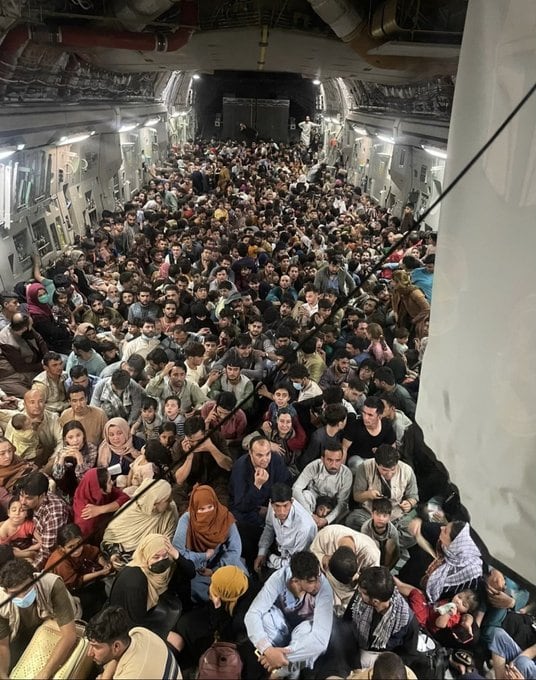
Pentagon spokesman John Kirby told reporters after the Abbey Gate attack that U.S. officials believed the airport still faced “specific, credible” threats.
Capt. Taylor Drolshagen, who flies the EC-130H Compass Call electronic attack plane, told Air Force Times in February that “many Americans are alive today who wouldn’t be” if Compass Call crews hadn’t monitored the Kabul airport from above.
She declined to answer whether an EC-130H had remotely stopped a bomb from detonating onboard the transport jet, as it can for improvised explosive devices planted on the ground.
“My guys were directly involved with saving lives both on the ground and also in the C-17s,” Drolshagen said.
RELATED

In the months that followed, Copley struggled to process his emotions. He’s fought off impostor syndrome, whispering that his trauma isn’t valid because a bomb never went off.
“I could have died that day,” he said. “It could have happened and I can accept that.”
Fonder moments remain, too. Copley made sure his passengers were cared for, refusing to leave until they had enough water on board to make it through a flight. On one trip, he befriended a few young Afghan boys and, pulling out his Nintendo Switch, offered to race them in Mario Kart. It was all fun and games until Copley started losing.
The experience proved that he’s capable of being part of something big, and has encouraged him to reenlist, he said.
Copley resumed more typical airlift missions after the withdrawal, moving cargo around the U.S. and to Germany and Spain. He’s taken part in transport missions in support of NATO and Ukraine during Russia’s ongoing invasion of its neighbor, but is currently grounded while undergoing physical therapy for a shoulder injury.
When not pushing pallets onto planes, the staff sergeant racks up about 80 hours of volunteering each year. He’s run retirement ceremonies, planned a Holocaust remembrance event and a squadron holiday party, and created opportunities for airmen to bond during the pandemic, according to his award nomination package.
Copley thinks he could make it to 20 years in uniform. He’d like to head to Altus Air Force Base, Oklahoma, for formal C-17 instructor training, then return to a flying squadron for a few years, pursue a staff job at Air Mobility Command headquarters in Illinois for more stability while he starts a family, and finish out his career at another flying squadron.
“I’ve learned a lot about myself,” he said of his first few years in the service. “I’ve definitely been molded into a leader.”
Military Times’ Service Members of the Year
Coast Guardsman of the Year | Watch
Rachel Cohen is the editor of Air Force Times. She joined the publication as its senior reporter in March 2021. Her work has appeared in the Washington Post, the Frederick News-Post (Md.), Air and Space Forces Magazine, Inside Defense, Inside Health Policy and elsewhere.




